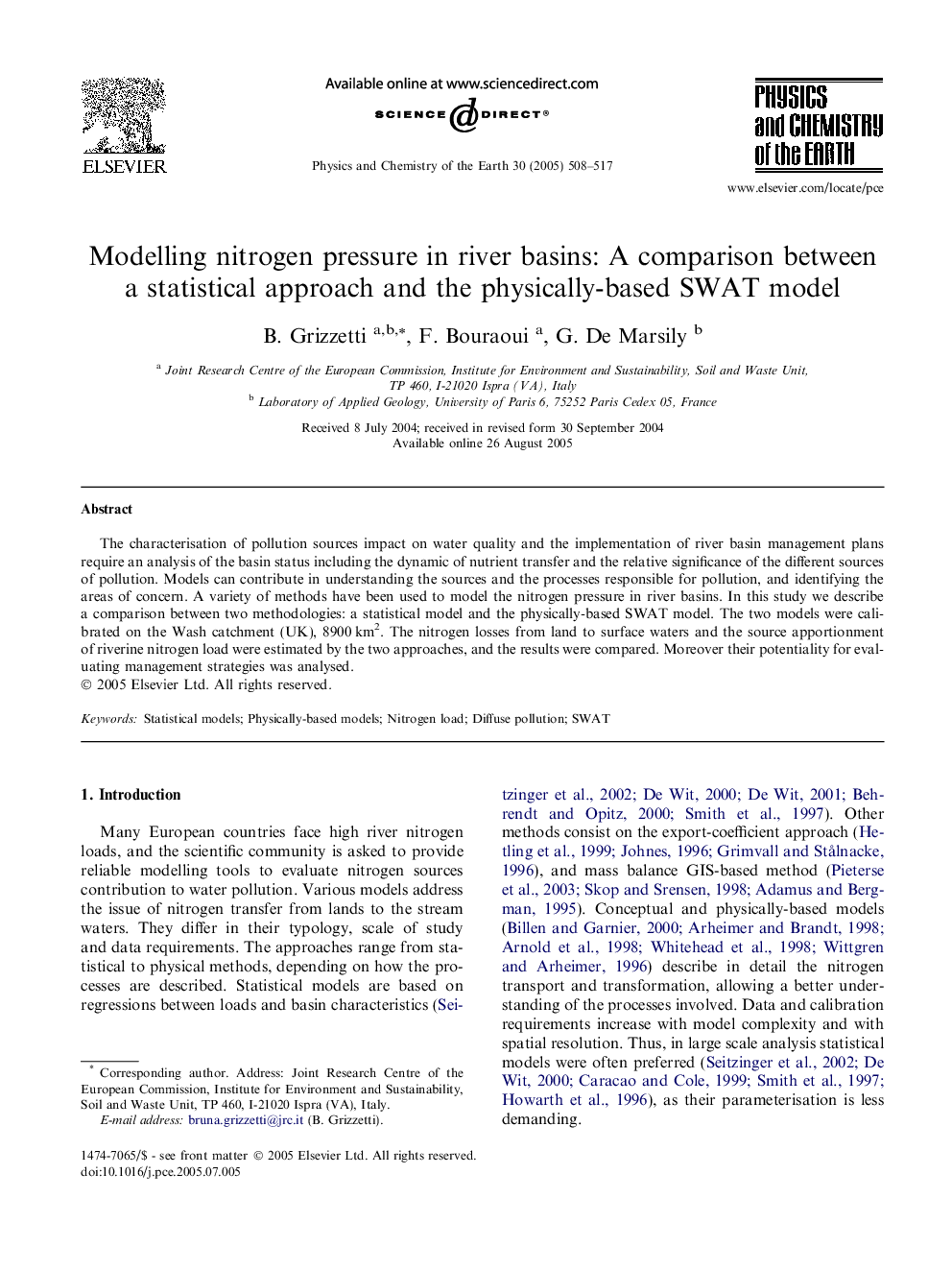| Article ID | Journal | Published Year | Pages | File Type |
|---|---|---|---|---|
| 10120057 | Physics and Chemistry of the Earth, Parts A/B/C | 2005 | 10 Pages |
Abstract
The characterisation of pollution sources impact on water quality and the implementation of river basin management plans require an analysis of the basin status including the dynamic of nutrient transfer and the relative significance of the different sources of pollution. Models can contribute in understanding the sources and the processes responsible for pollution, and identifying the areas of concern. A variety of methods have been used to model the nitrogen pressure in river basins. In this study we describe a comparison between two methodologies: a statistical model and the physically-based SWAT model. The two models were calibrated on the Wash catchment (UK), 8900Â km2. The nitrogen losses from land to surface waters and the source apportionment of riverine nitrogen load were estimated by the two approaches, and the results were compared. Moreover their potentiality for evaluating management strategies was analysed.
Related Topics
Physical Sciences and Engineering
Earth and Planetary Sciences
Geochemistry and Petrology
Authors
B. Grizzetti, F. Bouraoui, G. De Marsily,
